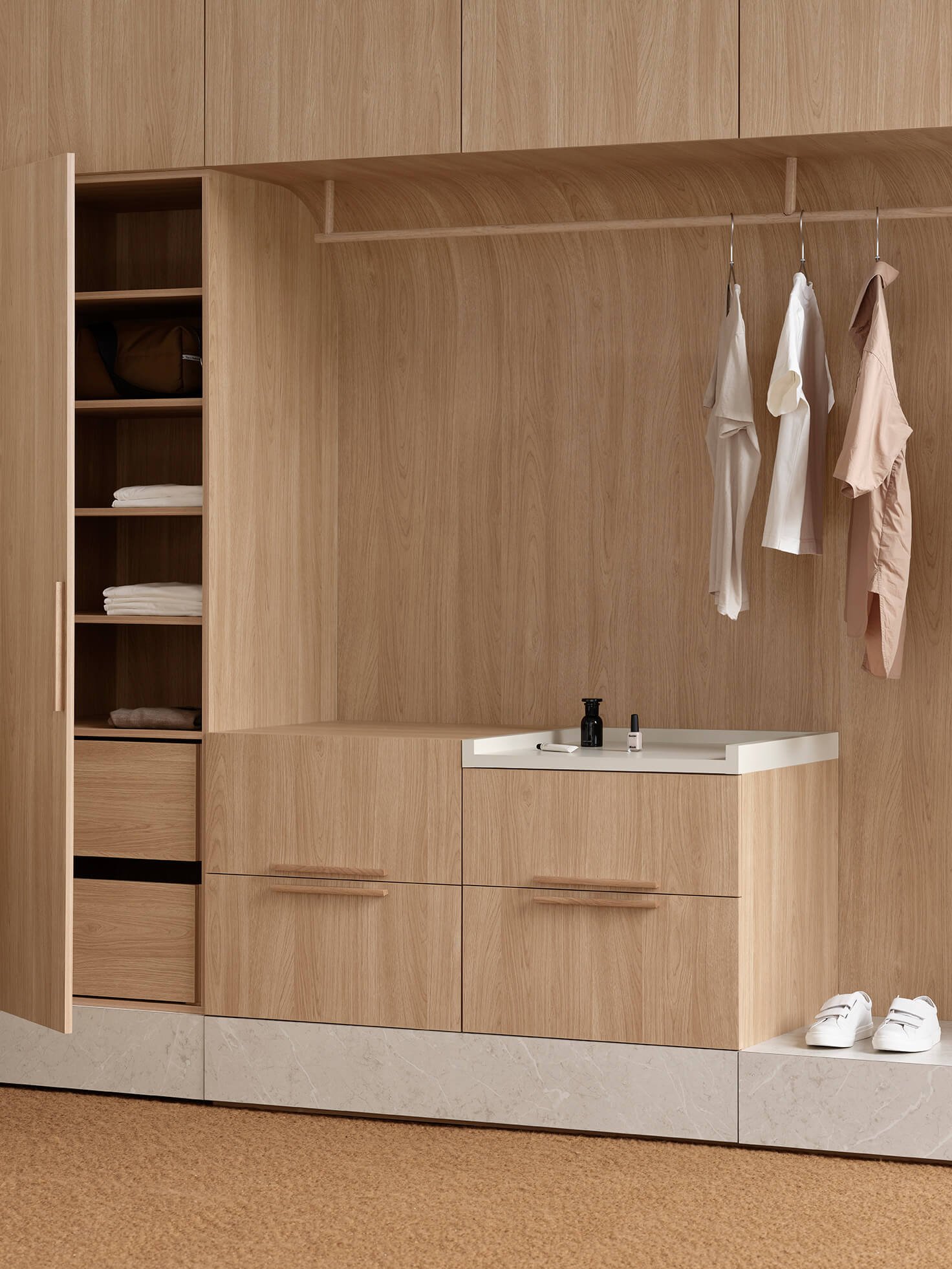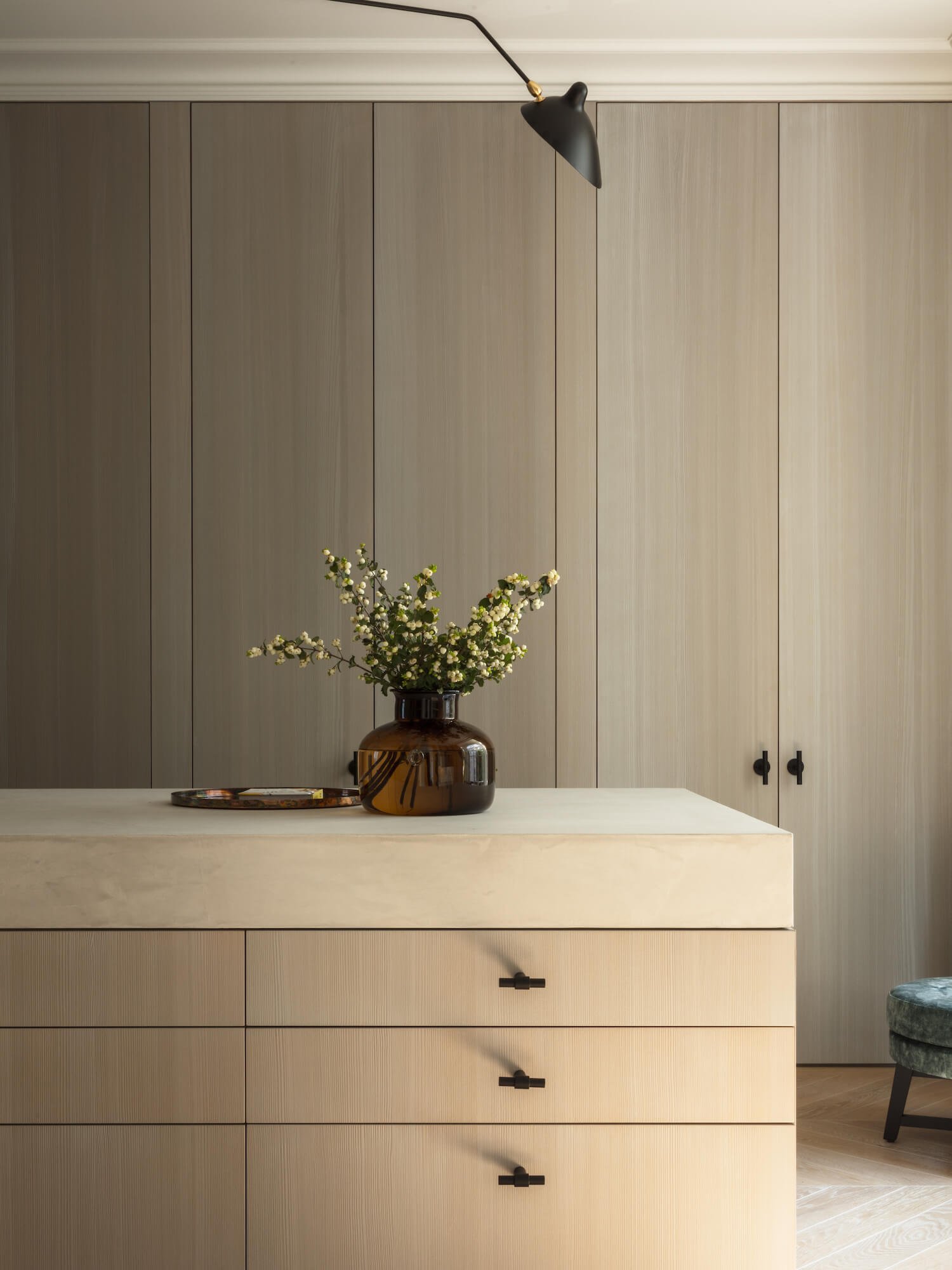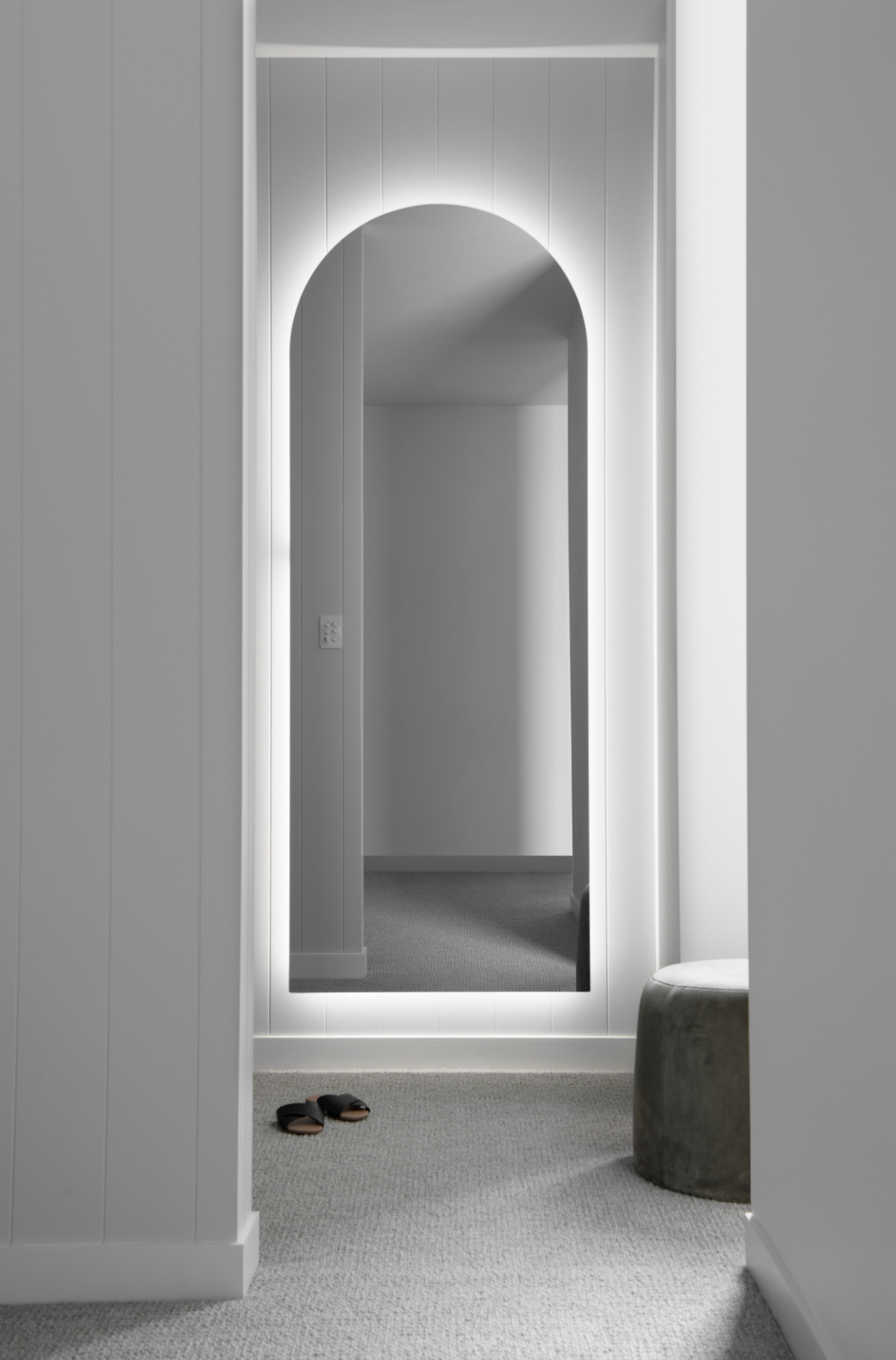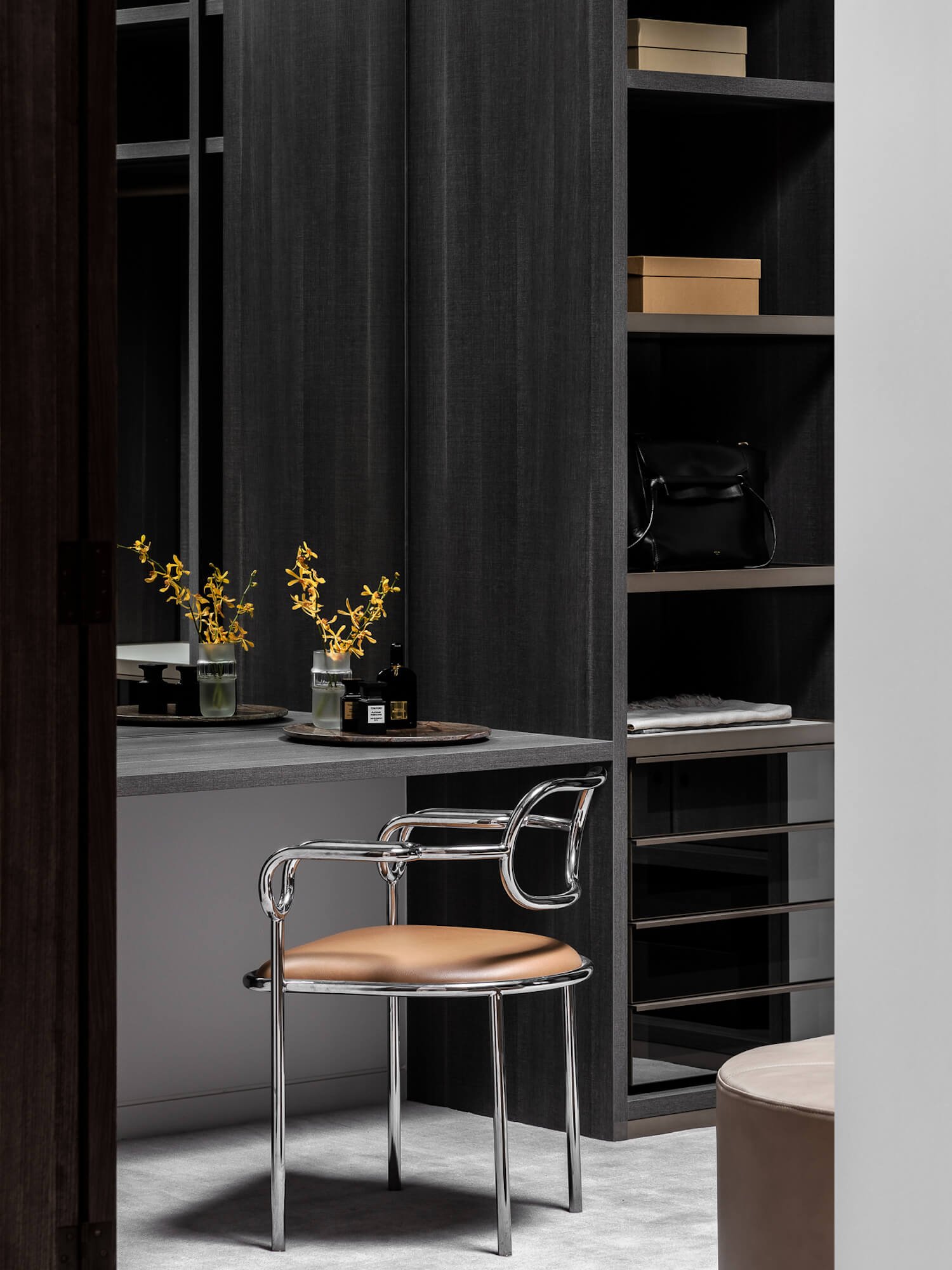Designing the Ultimate Walk In Robe
Ready to design a walk in robe that perfectly accommodates your designer threads, yoga pants and everything in between?
Optimising all available wardrobe storage space and maximising smart clothes storage is KEY to the success of your new wardrobe design. But how exactly do you do that?
We’ve spilt the beans on how to plan and customise your wardrobe design to suit your unique needs, plus must-have walk in wardrobe design ideas and storage tips… #ready!?
• Zephyr and Stone • Scandi Project Walk In Robe
• CJH Studio • Timber Curved Walk In Robe Design
Good Measure
The first step in designing your new walk-in wardrobe is to consider your storage needs. Do you have a plethora of floor-length maxi dresses, drawers of activewear or a rockin’ t-shirt collection? Start by making a list of your high-use items and what type of storage you’ll need to accommodate them.
Then it’s all about taking the space you have and maximising it with customised storage. So you might be 50% hanging, 25% drawers and 25% shelves. Or maybe you’re all about hanging space with just a few drawers for your smalls. A quick stocktake of your current wardrobe situation will help you develop a wardrobe storage plan to ensure the shoe fits… pun intended.
Drawers For Smalls
Drawers are one of the wardrobe essentials. They provide perfect storage for your smalls and the simple action of pulling a drawer open brings everything front and centre ensuring nothing gets lost at the back.
Drawers for smalls don’t need to be very tall; 220 - 300mm high ensures items such as socks and jocks are neatly contained and easy to find. Items like swimwear, sleepwear and accessories also store well in drawers, so make sure to include enough of this fabulous storage to accommodate your needs.
Zephyr and Stone • Retreat House Project Walk In Robe Designs
Know When To Fold ‘Em
When planning for walk-in closet shelving for folded clothing, it’s crucial to consider the width of the shelves. Each shelf should accommodate one or more piles of folded clothing, side by side.
Z + S Tip • To maximise the space you have, measure the width of your folded clothing and ensure any shelves accommodate that width. This ensures shelving is built to the task to avoid wasted or empty space.
Zephyr and Stone • Contemporary Coastal Project Designer Wardrobe
Zephyr and Stone • Scandi Project Designer Walk In Robe
Wardrobe Hanging Space
Hanging items is an effective way to store clothing and fit more pieces into a smaller space. But how much hanging space do you actually need?
Generally, one-quarter of hanging space should be allocated for full-length clothing, with the remainder for shorter pieces. When considering what type of hanging space is required, always consider the user’s needs, as men generally require far less full-length hanging space, if any compared to women.
Set the rail at approximately 1700 - 1900mm drop for full-length items, and approximately 1000mm for hanging items like shirts and similar pieces. For extra tall occupants, you might need to add a bit and vice versa.
Walk-in Wardrobe cabinetry should be at least 500mm deep, or if you have the space, 520 - 550mm deep. The extra depth ensures hangers fit neatly within the cabinetry, rather than sticking out and encroaching into the walkway.
Renovation Planning Cheat Sheets + Tools
The Drop Zone
A drop zone is without a doubt a wardrobe game-changer. It can be built-in to cabinetry or consist of a free-standing ottoman. It’s the ultimate addition and perfect for not only dropping clothes, but also — prepping an outfit for the next day, sitting your suitcase when packing for holidays, plus doubles as a seat for dressing or putting on shoes…
Zephyr and Stone • Classic Coastal Project Walk In Robe
Zephyr and Stone • Hamptons Project Walk In Robe Design
Kicks On Show — Shoe Storage
Whether it’s heels, boots, trainers or flip-flops, having somewhere to keep them is essential. The most cost-effective storage option is adding open shelves at floor level. However, if space and budget allow, incorporating customised, angled shelving for shoe storage is the ultimate and #sofancy.
Digital Walk-In-Robe Designs so you don’t miss a thing!
On Display
We all know that accessories can really add to an ensemble, so make it easy to plan and execute your look by having these items within reach. Consider specialised storage for items such as jewellery, bags, scarves, and hats, with a combination of narrow drawers, open shelves and cupboards.
Better yet, include a dressing table with custom mirror and lighting, and concealed power points in cupboards for the ultimate wow-factor feature.
Zephyr and Stone • Classic Coastal Walk In Robe Design with Backlit LED Mirror
Mim Design • Walk In Wardrobe Dressing Table
Walk-In Closet Final Look
No one wants to head out the door under or overdone, so a full-length mirror is a walk-in robe essential with extra points for a backlit vanity mirror (you’ll be glad you did).
Then to really maximise the space, install cabinetry floor to ceiling and utilise the top, out-of-reach spaces for storage of suitcases and other bulky items. And hey presto, you’ve created the ultimate walk-in wardrobe, customised to your needs with ticks in all the storage boxes!













